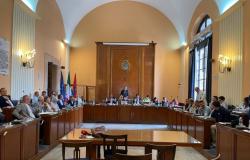Ubaldo Livolsi analyzes the results of the vote for the European elections and looks at the next events that will see Italy negotiate with Europe on various topics
Published:19-06-2024 10:17
Last update:19-06-2024 10:17
ROME – “The Italians demonstrated pragmatism at the European elections on 8-9 June, favoring those parties capable of being influential in the negotiations on who will sit in the control rooms of the European Union”. The elections and the implications for the EU’s economic policy in the reflection of Ubaldo Livolsi, professor of Corporate Finance and founder of Livolsi & Partners SpA, in the new appointment of his column with the Dire agency, edited by Angelica Bianco.
“Forza Italia awarded with 9.6% of the votes (‘Huge result, we are not a museum party, it is no longer Berlusconi’s Fi but the values are the same’, said the secretary Antonio Tajani), which is part of the first group in the Parliament, the European People’s Party (EPP, 186 seats). The Democratic Party also performed well (24.1%), which is part of the second grouping, that of the Social Democrats (S&D, 135 seats). The success of Fdi is notable – continues Livolsi – the political formation led by Giorgia Meloni, which is the most voted in Italy (28.2%). The prime minister will be able to authoritatively speak her mind, despite the fact that her group, the conservatives and reformists (Ecr, 73 seats), of which Meloni is president, is not part of the outgoing majority. The latter, made up of popular, social democrats and liberals (Re, 79 seats), could be reconfirmed. Furthermore, Meloni is strengthened by the success of the G7 chaired by her last week in Puglia. The M5S was penalized (10% of the consensus, the lowest result since the birth of the movement), which did not belong to any group, which means not participating in the division of tasks (presidencies, vice-presidencies, role of rapporteur, etc.) nor in that of the funds”.
“The distribution of tasks is fundamental, starting from that of the new commissioner – who should replace (or confirm) Ursula von der Leyen (EPP) – indicated by the heads of government and then voted by the plenary of Parliament. At the informal dinner of the European Council on 17 June – explains Livolsi – negotiations began on the other top roles: from commissioners to the president of the European Council and of Parliament to the EU High Representative. Italy will be directly involved in several economic dossiers. Our country will have to make a decision on whether it is the only one of the 20 Eurogroup members to have not yet ratified the treaty establishing the new European Stability Mechanismthus preventing other states from benefiting from the parachute function of the bank resolution fund”.
“The Union’s monitoring of the Pnrr will also continue – underlines Livolsi – (at the end of 2023, Italy had collected 102 billion, 41 billion in the form of grants and 60.9 as loans). Rome must prepare for another discussion with Europe: Brussels will announce these days countries with excessive deficits (there should be 11, including Italy, which with 7.4% has the highest deficit) and the technical trajectories for debt reduction, and by 20 September Palazzo Chigi will have to present the spending plans.
Then there will be specific issues that strictly concern us: the postponement of liberalization of beach concessions, provided for by the so-called Milleproroghe decree of 2023, sanctioned by the Brussels infringement procedure. Also waiting for the bridge loan of 320 million euros for yet another rescue and the new restart of the former Ilva of Taranto”.
“To put the country in a position to have growth, it will be crucial for Italy, having emerged from the European polls strengthened, to insist on two themes: on the one hand, measures that stimulate growth competitiveness of companies – and here Mario Draghi’s Competitiveness Report should play a decisive role – to face the clash with giants such as the USA and China, on the other – a topic that is very close to my heart – thatCapital Market Union. As the governor Mario Panetta recalled in his Final Considerations of May 31, there are two major problems to be resolved in order to move towards this objective: on the one hand the lack of a risk-free European public security, on the other the incompleteness of the banking union” concludes Livolsi.
The news on the Dire website can be used and reproduced, provided that the source Agenzia DIRE and the address www.dire.it are expressly cited





